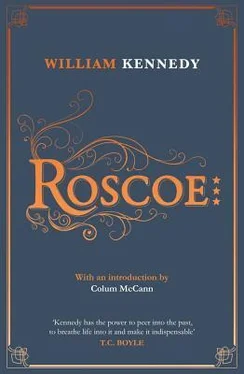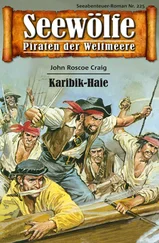“Make no mistake,” Felix said. “Townsend Blair’s a hell of a candidate. And James Watt is not the most popular mayor this town ever had. He can be beat this year. Blair will get the soldier vote.”
“He will and so will I,” said Patsy, “and I’ll get coattails from those that know him but don’t know me. You trust Blair, Dinny?”
“He’s smart, and he’s honest,” Dinny said.
“That’s always a problem,” Felix said.
“The real problem,” Patsy said, “is he’s a captain. If he’s elected he’ll think he’s in charge.”
The Phoenix Club members heard this wisdom and looked at the precocious Patsy as if he’d just been born out of the ashes of one of their old cigars. They then took the entire discussion under advisement and went home for their first Sunday dinner under the new political order they did not quite realize had just come into existence.
The First Movement
Captain Townsend Blair of the 51st Pioneers Regiment stepped out as grand marshal of the election-eve parade, two hundred of his fellow Pioneers and five thousand others behind him, plus thirty thousand watching from the stoops and sidewalks, recognizing him from photos in the newspapers, and in the paid ads always in his uniform, garrison cap, and captain’s bars. He wasn’t a half-bad speaker, had a pleasant look, and money: his family foundry had been Lyman Fitzgibbon’s chief competitor in the stove era. Also, he was a Protestant, and that, plus wealth, was deemed essential in a mayor — for you know what happens when they elect a Catholic. Remember Felix Conway? Kicked him out for vote fraud. Who’d ever kick out a Protestant?
Blair also had the backing of Arthur T. Grogan, which was confounding as well as bad fiscal news for Patsy. Arthur Goddamn Grogan, Patsy called him. Grogan had begun his career as a teenage oyster-shucker at the Delavan House in Albany, graduated to bartender, bought a large shipment of tea on speculation from a traveling tea broker, and quadrupled his investment. He compounded that money as a politically connected contractor, first paving streets, then building sewers and bridges, then owning a gas company, trolley lines, electric-power companies, eventually building subways in Brooklyn, Queens, and Chicago, and it’s all done through politics, boys. That’s how he became the richest man in town, whenever he was in town, a Knight of Malta Catholic who had backed Felix Conway for mayor in 1890 and 1892.
Grogan preferred incumbents, liked money, not struggle, and when the Republicans came in here in ’99 he stayed with them for twenty years. But he kept his eye on electables, and this year of potential change gave a quiet but sizable sop to Packy McCabe on behalf of Townsend Blair, who had won the support of both labor and half the Fort Orange Club, the social sanctuary of Grogan’s financial peers. This year of 1919 just might be yet another season for Democrats, like 1918, when we elected Al Smith Governor. Now Prohibition’s coming, and people don’t want it. They’re going to blame somebody, and the Republicans are in charge here. This town is changing. If Blair wins this year, and he can, Packy McCabe will be on horseback with an elected mayor and also with Grogan, his absurdly rich benefactor. And they’ll all settle down together for God knows how long in City Hall, which Patsy has his own eye on; and so Patsy has a special problem with this.
Grogan was a problem of a different order for Roscoe and Elisha. They lived with the memory of his visit with David Morgan, Veronica’s father, who in 1914 had bought the mansion of a deceased dry-goods merchant on State Street, in an elite block facing Washington Park. Morgan bought the house when it came on the market, and moved his family out of the three-story South End brownstone they had outgrown. Roscoe was courting Veronica that year, and she told him the story of Arthur Grogan’s visit to the mansion. Grogan had pulled up in his Buick touring car and sent his chauffeur to bring David Morgan out to speak with him.
“My father knew him, of course,” Veronica said. “Everybody knew him.”
Grogan lived a block down State Street from the Morgans’ new house, in the city’s largest and most luxurious townhouse. David Morgan stood alongside the auto and Grogan said to him, “You know who lives in that house next door to you?”
“No,” David Morgan said.
“The Bishop’s family,” said Grogan. “The family of the Catholic Bishop.”
“I look forward to meeting them,” Morgan said.
“You can’t live here,” Grogan said. “You can’t live next to the Bishop’s family. You’re a Jew.”
“Does the Bishop know you’re speaking on his behalf?”
“Don’t get a fresh Jew mouth on you,” Grogan said. “Just get off this street. You don’t belong here. Go live where Jews live.”
“We live everywhere.”
“No, you don’t.”
The next day, Grogan moved stealthily to buy up stock in David Morgan’s scouring-powder company with the aim of taking control. Elisha learned of the scheme from his broker and, moving more quickly through Morgan family access to records of the diverse holdings, he bought the stock in Veronica’s name, then gave it all to her father as a loan. Grogan’s threat evaporated, and David Morgan was ever grateful, his daughter even more so: to the point of ending her courtship by Roscoe and marrying Elisha. A spoiler at many levels, Mr. Grogan.
The Morgans remained in their State Street mansion, and David Morgan gained a nodding acquaintance with the Bishop’s family next door.
It smelled like victory to Roscoe, even a large plurality. They marched past cheering crowds, past dozens of bonfires that illuminated the night, along with the fires in all their bellies, and they moved through the length of downtown, from Arbor Hill toward the Farmers’ Market on Grand Street, to the tunes of the fife-and-drum corps of Christian Brothers Academy, Roscoe’s alma mater . And they chanted:
Who ate the beans? Blair.
Who brought home the bacon? Blair.
Who took us over the top? Blair.
Who gets the soldier vote? Blair.
Elisha did not walk in the parade, but he helped pay for some of it. His steel mill had made a few million on war contracts, and out of guilt and friendship, and because he loved politics more than steel, he spent prodigally on Patsy’s campaign rallies, on election cards, on banners spanning half a dozen streets, plus ready cash for workers who wore out their shoes working the wards for Patsy. There’d be street money tomorrow to reward male voters for their vote, and silk stockings to reward the women. Bountiful newspaper ads, paid for by Elisha, had appeared with Patsy’s picture in uniform above his letter to the Women’s City Club promising assessment reform and agreeing with everything Captain Blair ever said.
Roscoe marched alongside Patsy, half a step behind, leading the third division, a thousand in line behind them — Patsy’s own booster club, North Enders, Arbor Hillers, soldier pals — and the chant went up for “Patsy, Patsy, Patsy.” Hell, even women were coming out, and, for the first time in history, they would work alongside vets and goo-goos as poll-watchers to guard against peeping at ballots, mirrors on the ceiling, bullies in the Donnybrook wards who block the door and either drive you away or force you to fight your way to the ballot box. We’ll have none of that in this year of our heroes, Captain Blair and Corporal Patsy.
Roscoe, walking at the head of this loyalist throng, felt the vibration of the marchers and spectators, their great numbers, the rumbling of their planetary music. Looking back at them as the parade stretched halfway up North Pearl Street, he wanted to dance that dance of love — show me that you love me — vote for me. Ah, the power of numbers. The power of all things and all people moving in their rightful place on the planet. You can hear the close harmony of their motion, the heavenly music of the spheres.
Читать дальше












